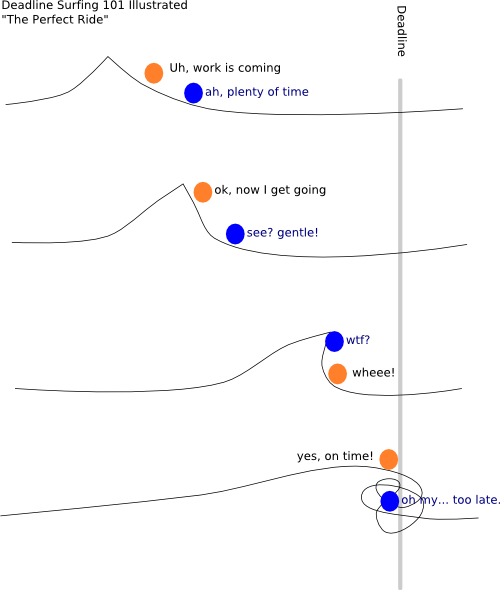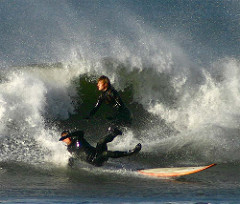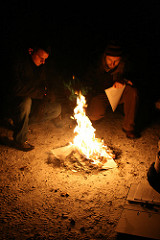Here the CFP from the IR-KR workshop. All who think there are cooler uris than those, submit something.
=======================
CALL FOR PAPERS
IR-KR2009 at IJCAI-09
July 11-13, 2009
Pasadena, CA, USA
=======================
The IJCAI-09 Workshop on
“Identity and Reference in web-based Knowledge Representation” (IR-KR2009)
http://ir-kr.okkam.org/
July 11-13, 2009
Pasadena, California, USA
held at the International Joint Conference on Artificial Intelligence
(IJCAI-09)
http://ijcai-09.org
— IR-KR2009 goals —
The goal of this workshop, which in past years was mainly organised
within the Web and Semantic Web (SW) communities (see past editions at
WWW2006, WWW2007, ESWC200q8), is to widen debate on the impact and the
challenges that the notions of *identity* and *reference* in
web-oriented KR poses to some of the core concepts of AI.
— Background & Description of the workshop —
The Semantic Web initiative advances the idea that the web may become
a space not only for publishing and interlinking documents (through
HTML hyperlinks), but also knowledge bases (e.g. in the form of RDF
graphs) in an open and fully decentralized environment.
Even though models and languages used to implement the nascent
Semantic Web have been taken from long-standing research in AI, SW and
AI have different priorities. While traditionally a strong focus
within AI has been developing theories and code to support sound and
complete reasoning, web-oriented KR has a primary concern of web-wide
information interoperability and integration.
Perhaps the most central issue in reconciling these concernd is the
Principle of Global Identifiers: “global naming leads to global
network effects” (see Architecture of the World Wide Web, Volume One,
2004, at http://www.w3.org/TR/2004/REC-webarch-20041215/). As for the
web of documents, the overall value of such open and distributed
network of truly interlinked knowledge sources, based on global names,
would be immensely bigger than the sum of the value of the components.
This central role of identity and reference for a web-scale KR poses
new challenges to traditional KR, and many researchers have suggested
that the concept of URI may deeply affect the notions of language
(e.g. the semantics of using the “same” URI in different models),
reference (e.g. rigid vs. non rigid designation), interpretation
(e.g. the meaning of “links” across knowledge bases) & reasoning
(e.g. distributed reasoning across theories) in traditional
logic-based KR in AI. This workshop addresses these challenges.
— Expected outcome —
The anticipated outcome of the workshop is to assess the state of the
art in the area of Identity and Reference in AI and the SW, and to go
beyond the limited scope of the current Semantic Web, as well as to
discuss and critically evaluate approach and next steps in
implementing and reasoning about identity and reference. It is
expected that the workshop will provide a valuable opportunity for
cross-fertilization across different research communities.
— Workshop format —
Based on the successful experience in the past workshops on this
topic, the format of IR-KR2009 will be the following:
* a keynote talk that illustrates the importance of the topic
* very short presentations of the accepted papers, to give
participants an overview of the research work of the main
workshop contributors
* presentation of a detailed list of topics to discuss, by the
workshop chair
* extensive, moderated plenary discussion
* collaborative write-up of conclusions and next steps
— Submissions —
The workshop aims at collecting contributions which can roughly be
grouped as follows:
* Foundations: formal and conceptual theories of identity and
reference for web-oriented KR
* Formal theories: semantics for KR on the web, soundness and
completeness of web-oriented reasoning, semantics of interlinked
data
* Vision papers: visionary solutions to the problems of identity
and reference in KR
* Project papers: descriptions of research & development projects
in this area
* Experiences: contributions from research and industry that
illustrate case studies or approaches to deal with the issues of
identity and reference on a web-scale
* Critical viewpoints: discussions of advantages and disadvantages
of the proposed approaches
We especially encourage contributions from groups or organizations
which are working on assembling large knowledge-based data collections
in order to compare the different practical solutions which were found
for integrating semantic data from multiple sources.
— Submission Requirements and Dates —
IR-KR2009 will accept submissions for full papers, posters and
demonstrations. The selection will be based on the significance and
the quality of submissions as well as oriented towards fostering
cross-pollination and discussions during the event. All selected
abstracts will be included in the IJCAI-09 Working Notes. Authors are
kindly requested to provide keywords upon submission. The format for
submissions is the same as that of IJCAI-09. Please check
http://ijcai-09.org for the style files. Submissions should be no
longer than 5 pages.
– Submission deadline (papers, posters, demos): March 6, 2009
– Notification to authors: April 17, 2009
– Camera-ready version: May 8, 2009
– Workshop dates: July 11-13, 2009
Submissions will be managed through EasyChair.org at:
https://www.easychair.org/login.cgi?conf=irkr2009
— Attendance —
Following IJCAI-09 policy, the total number of participants in
IR-KR2009 will be limited to 75 people. This includes organizers, PC
members, invited speakers, authors and attendees. Authors will be
selected based on the significance of their submission and will be
preferred during registration to non-presenting
attendees. Non-presenting attendees will be selected on a
first-come-first-served basis. Please refer to http://ijcai-09.org for
the application procedure and fees.
— Workshop Chair —
Paolo Bouquet, University of Trento [PRIMARY CONTACT]
bouquet@disi.unitn.it
— Workshop Organizers —
Marko Grobelnik, IJS, Slovenia
marko.grobelnik@ijs.si
Harry Halpin, University of Edinburgh
hhalpin@ibiblio.org
Frank van Harmelen. VU Amsterdam
Frank.van.Harmelen@cs.vu.nl
Heiko Stoermer. University of Trento
stoermer@dit.unitn.it
Giovanni Tummarello. DERI Galway
giovanni.tummarello@deri.org
Michael Witbrock, Cycorp Inc
witbrock@cycorp.eu
— Program Committee —
Confirmed members:
Bo Andersson
Karl Aberer
Michael K. Bergman
Dan Brickley
Werner Ceusters
Kendall Clark
Richard Cyganiak
Hugh Glaser
Nicola Guarino
Gregor Hackenbroich
Tom Heath
Alexander Löser
Antonio Maña
Larry Masinter
Bijan Parsia
Peter F. Patel-Schneider
Valentina Presutti
Marta Sabou
Leo Sauermann
Luciano Serafini
Dagobert Soergel
Andraz Tori
Bernard Vatant



 (c) dude crush, flickr
(c) dude crush, flickr (c) vaguely artistic
(c) vaguely artistic (c) coast guard bm
(c) coast guard bm (c) localsurfer
(c) localsurfer (c) soulsurfer3 on flickr
(c) soulsurfer3 on flickr







 marco, the business man, and a penguin.
marco, the business man, and a penguin.